
I am an unabashed scientismist. Scientism is often derogatorally described as an overuse, over confidence in science, and an arrogant refusal to see there are other “ways of knowing” usually religion, art, literature, and philosophy.
From the wiki:
“Scientism is the promotion of science as the best or only objective means by which society should determine normative and epistemological values. While the term was originally defined to mean “methods and attitudes typical of or attributed to the natural scientist”, some religious scholars (and subsequently many others) adopted it as a pejorative with the meaning ‘an exaggerated trust in the efficacy of the methods of natural science applied to all areas of investigation (as in philosophy, the social sciences, and the humanities)’. The term “scientism” is often used critically, implying an unwarranted application of science in situations considered not amenable to application of the scientific method or similar scientific standards.”
And from Merriam-Webster online:
“1: methods and attitudes typical of or attributed to the natural scientist
2: an exaggerated trust in the efficacy of the methods of natural science applied to all areas of investigation (as in philosophy, the social sciences, and the humanities)”
I guess the religious scholars really liked that 2nd Merriam-Webster definition so well that it became memorialized in the Wiki quoted above.
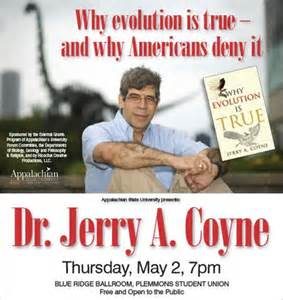
The evolutionary geneticist Jerry Coyne had an ongoing exchange of letters on the topic with Adam Gopnik, the writer and essayist chronicled HERE. Along with the contention that there are “other ways of knowing” than science, they discuss what makes something science or not science: the Demarcation Problem
Gopnik suggests that to learn about families for example, one can read literature such as Salinger’s novels. He contends that literature is a another way of knowing about how the world and people work that is not science. Well, novels like Catcher in the Rye are basically thought experiments, conjectures about fictional families and personal interactions which may contain a great deal of truth about real families given that novelists may well be very keen observers and chroniclers of the human condition. But, that said, we have no way of knowing if the people and family interactions as described for Holden Caufield or any other set of fictional characters in a novel describes real-life family behaviors, without checking in on, and observing real families in action, i.e. doing the science.
Without that crucial step of empirical testing of whatever family behavior might be described in a novel, we have no knowledge, only conjecture, however accurate it may prove to be. We don’t know if it is accurate or not and that we have gained any knowledge, until we test such described behavior in the real world, with real families. The novel alone is conjecture, not unlike a clever science thought-experiment-that may be based on years of observation and rumination. It may contain some true facts, i.e. real knowledge about human behavior or how the world works, but that has to be ascertained by comparison with reality. Until the final step, you got only speculation however well-motivated or constructed.
So the only way that a piece of literature could allow us to learn about or know something about real people and how they interact would be to confirm the literature by scientific observation. The author might for example write a real plausible sounding story that happened to no family anywhere, and describe behaviors no human ever actually responded with. If it is complete fiction, then did we learn anything? No. In fact we could be misled. Without checking the literature story against real life we cant know if we learned anything or not. Without the science, no learning, no knowledge-it could be pure fantasy.
Without systematic observation that something is so, and repeated observation and confirmation by others-its not science-not knowledge but only conjecture. Literary fiction does not provide a “way of knowing.”
Professor Coyne describes science in this way:
“My view of science as a toolkit for knowing means that some disciplines using those tools can be seen as “Greater Science”. Plumbers who find a leak, mechanics who locate an electrical fault, and doctors who diagnose your ills are acting like scientists. Ditto for archeologists dating civilizations, art historians authenticating paintings, journalists digging up facts, and historians reconstructing the past. Refuting Holocaust deniers involves lots of science: demographics, inspecting extermination camps, studying authenticated documents and photographs, and so on. What’s important is that you must observe the world to get empirical knowledge. You can’t derive it by sitting in your armchair and thinking, though that can generate ideas that eventually yield knowledge”.
Jerry cites the physicist and science educator Sean Carrol in his explication of poetic naturalism and “scientism”
“There is only one world, the natural world; the world evolves according to unbroken patterns, the laws of nature; and the only reliable way of learning about the world is by observing it.”
Another physicist and author David Deutsch stresses “good explanations” as integral to scientific knowing- which are those explanations that can’t vary much, else their explanatory power falls apart.
He contrasts mythological explanations with scientific ones. For example the seasons were once explained by the emotional states of mythological figures: when one god was sad, it was cold and wintry, or when the god(s) were happy, then it was sunny and warm. Deutsch points out such a kind of explanation is a bad one as it could easily vary, since one could also say, when the same or other god was sad, they created warmth and sun to cheer themselves up and when happy sought the comfort of of a warm abode in winter (as common a theme in mythology as one can find- the gods, however supernatural they may be in their powers and heavenly abodes, are in so many ways all too human).
So one could redo that mythological explanation in a vast number of ways in an attempt to explain an empirical fact: different seasons.
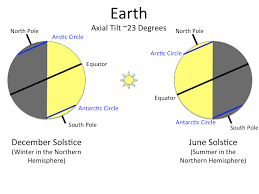
Deutsch contrasts this with the modern scientific explanation of the tilt of the earth away from the vertical enuf that in one time of the year (the position in space 1/2 way thru the annual orbit around the sun) the northern hemisphere is titled toward the sun during summer and away from the sun 6 months later during winter-and vice-versa for the southern hemisphere. This explanation cant vary much at all or it wont account for the seasons and the opposite seasonal cycles in the 2 hemispheres.
Try as I might, I couldn’t find a clear exposition of just what it was that made a good explanation un-variable in his writings or videos, just that that’s what they were. So, I will add my own 2 cents to Professor Deutsch’s thesis.

Good explanations – scientific theories that work – that do account for phenomena contain detailed causal process chains- and it is those causal connections that cant vary much at all. That’s what separates a good explanation/theory from a bad one- or science from mythology or any other pseudoscience: like astrology, chiropractic, homeopathy, quantum consciousness, QAnon, ESP, the soul, and the like.
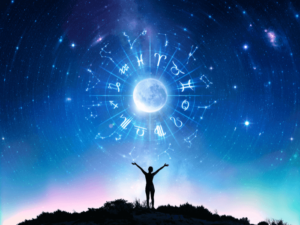
For example, astrology proposes that the positions and configurations of the stars at your birth affects your personality and fate in some way. From the Wiki:
“Contemporary Western astrology is often associated with systems of horoscopes that purport to explain aspects of a person’s personality and predict significant events in their lives based on the positions of celestial objects; the majority of professional astrologers rely on such systems.”
The “way” that the stars somehow affect you and events in your life (read causal explanation process) is never defined. How do stars affect you, in any way? Is it gravity? Well your pillow has more of a gravitational effect on you than the moon, much less the distant stars. Does the light from the stars somehow effect your personality? How? No causal process is ever offered, which makes astrology as useless as old mythological explanations that left that same huge gap unfilled-exactly how does it work?
In addition of course, astrology has been debunked repeatedly over the years: it doesn’t work, the position of the stars at one’s birth does not affect your personality or fate.
Consider that roughly 385,000 people are born every day all with widely varying personalities and ultimate fates-how would the precise position of the stars-the same for all 385,000 new humans effect them all so differently? Its beyond absurd to believe in astrology. But we LOVE this stuff-mythology, conspiracy theories, and ancient ideas that arent true, have no evidence for them, have been shown to be false, but give us a sense that we know something others dont- that WE got the real skinny-is legitimized in all religious training, by all religions. It is one of many reasons why I called it:
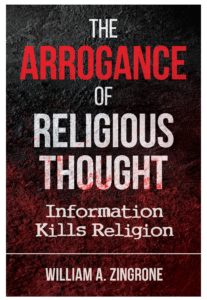
Never mind also that the “sign” or house of the Zodiac you were born in lasts 30 days or so-(I’m considered a Virgo Aug 24-Sept 22) and in that time of Sun, planets, and stars positions – over 11.5 million people were born – all of wildly different fates and personality traits-but somehow the stars determine who you are and what will become of you?…What bullshit, eh?
So science, through systematic and detailed observation, substantial data collection and statistical analysis, driven by and producing explanatory theory, tested by experimentation, confirmed by replication and published in peer-reviewed science journals races on – on so many fronts nowadays it is hard to keep track of them all-and it produces ever-improving modern knowledge on every subject we can investigate. Precise, detailed, intricate, and verifiable causal chains that work is what we get from science. While the philosophers debate over just how its done or whether its done at all, science doesn’t merely plod on, it rocks on incessantly!
Somehow scientists all over the modern world (around 10 million of them nowadays) carry on with their work, like millions before them thru the last couple of millennia, and especially the last 150 years, despite philosophers either being unable to define what science really is, or that it exists at all, or that it is ultimately no different than art or mythology.
Literature, art, and mythology did not get us any of the things science has-better crops, clean water, chemistry, biology, computers, smartphones, physics, psychology, anthropology, vaccines, cancer cures, heart surgery, antibiotics, MRI, cleaner air, sanitation, lasers, and on and on and on. The produce no knowledge on their own. They are not ways of knowing or discovering anything. They may be enjoyable, moving, and very wonderful emotional past-times-incredibly important aspects of human culture that we have enjoyed for millennia-but that’s it. It is no diminishment of their import to the human condition to recognize they are not science, not ways of knowing. Neither is music, but so what? Its incredible, still.
So, despite many philosophers and humanities professors and religionists dismay and denigration of science, it proceeds with millions of research projects now in the 21st century, a juggernaut of inquiry and problem-solving, cranking out causal explanations based in reality, not fantasy, not fiction, for the good of us all.
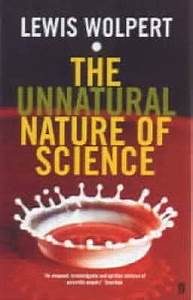
Lewis Wolpert on page xiii of his “The Unnatural Nature of Science” (1992), puts it rather succinctly:
“It might be thought that either philosophers or sociologists would have been able to illuminate the nature of science and why it is so successful. Alas, not only have they failed to do so but some have provided what they regard as good reasons for doubting whether science really does provide an understanding of the way in which the world works…Fortunately for science, these philosophical claims have no relevance to science and can be ignored.”
Those many millions of scientists working in the world today somehow quietly do their business wholly orthogonal to philosophical musings about what science is or isn’t, what it can or can’t do, why it is ending, or how it is somehow merely equivalent to looking at the world as any and all primitive, mythological, worldviews might. Yet we keep discovering through science how the world really does work, while religions blather on about their own peculiar mythologies – discovering nothing new, and the philosophers scratch their heads playing their word games over and over how science cant be happening.
But somehow it does.
The vast majority of those 10 million working scientists have a research PhD in some field or another, which provided them training in research into a specific portion of how the world works. Despite claims by many philosophers that there is no real method to science, that it is just a grab-bag of differing methods as one proclaims,–all those PhD researchers learn that method, starting with systematic observation, detailed data collection and statistical analysis, to hypothesis conjecture, hypothesis testing, publication, and replication. They all do these steps: some do elegant experimentation, others may only do analysis of their observations to determine what is true or not: historians, anthropologists, sociologists and the like may not do any experiments to test hypotheses, only detailed observational and rigorous statistical analysis to confirm their findings, but they are doing science nonetheless. So as far as contributing to “normative and epistemological values” science can find out what is true about human nature, through anthropology, sociology, and psychology, versus religious and philosophical conjecture, with which we can make informed decisions about human flourishing. Through these disciplines for example, we know no-one likes to be a slave; humans have motivations for personal freedoms and autonomy and social acceptance that are allowed to blossom in a modern free society.
Lastly, science nowadays is mostly cumulative. There is much to discover with no end in sight, but the revolutions of science jettisoning wholesale old pre-scientific ideas are no longer the norm (think the Copernican Revolution). We are largely adding to and refining our knowledge, improving on data and theory on the whole, incomparably more often than discarding previous knowledge. We may one day discover what quarks are really made of for example, but in doing so will most likely not eliminate protons and neutrons, or atoms and molecules, material science, biochemistry or neuroscience as a result. Einstein’s General Relativity gave us an explanation for what gravity really is that Newton didn’t (nor wisely, didnt attempt: “hypotheses non fingo”) but we still went to the moon on Newton’s equations and launch satellites and baseballs accurately with his inverse square description of universal acceleration. Hypotheses at the cutting edge of science are proposed and discarded daily but the overall theoretical underpinnings of the world as we have found it: Heliocentric theory, The Germ Theory of Disease, Cell Theory, Evolutionary Theory, Electromagnetic Theory, Atomic Theory, General and Special Relativity, the Standard Model, Plate Tectonics, Quantum Field Theory etc., etc., probably aren’t going away anytime soon.
Scientism, ya gotta love it.
end religion now.
(873)
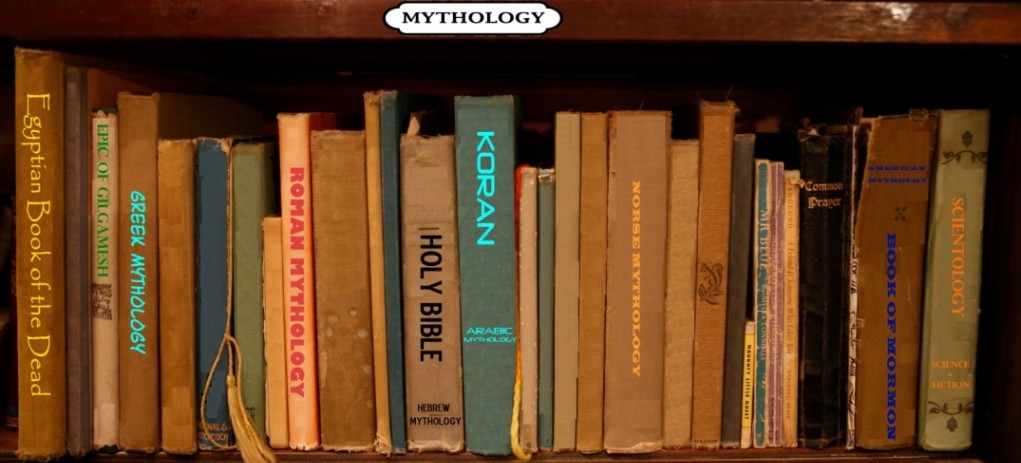
Pingback: viagra in holland abholen
Pingback: pilules bleues viagra
Pingback: viagra online no prescription
Pingback: Rational Optimism vs. Religious Pessimism: a Secular Science Perspective episode 1. – Dispatches from the New Enlightenment
Pingback: 5mg cialis daily
Pingback: lawn mower hitches
Pingback: viagra 150 mg pills
Pingback: real money gambling apps ios
Pingback: pictures of viagra pills
Pingback: 50 mg sildenafil price
Pingback: buy viagra online legit